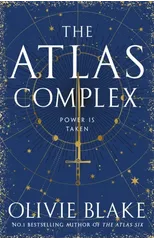'He stretched out his two long, lank arms, that looked like spider's claws, and seemed to embrace with them the expanse before him' His inheritance squandered and engagement severed, Guido di Cortese stalks the desolate Genoese coast. A monstrous creature, shipwrecked by a ferocious storm, offers him unimaginable wealth to exchange bodies, entwining their fates. Transformation, with two further tales of striking and eerie power here, shows how Mary Shelley haunts us still.
Mary Shelley
Mary Shelley was an English novelist, best known for her Gothic novel "Frankenstein; or, The Modern Prometheus," published in 1818. She was born in 1797 and was the daughter of political philosopher William Godwin and feminist Mary Wollstonecraft. Shelley's literary style is characterized by its exploration of existential themes, the consequences of scientific experimentation, and the complexities of human nature. "Frankenstein" is considered a seminal work of science fiction and has had a lasting impact on the genre, inspiring countless adaptations and interpretations. Shelley's other notable works include "The Last Man" and "Mathilda." Her contributions to literature have solidified her as one of the most important figures in the Gothic literary tradition.











